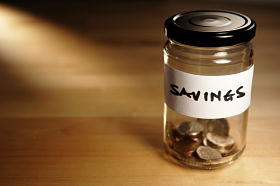Who has sat down at the last minute to do their tax return only to discover that there is something they don’t understand, paperwork that can’t be located or that their tax position is more complicated than first envisaged? And, then the problem you discover is that there’s not enough time to figure it out before the deadline. Sound familiar?
For most of us, submitting a tax return is seen as a dreaded chore to be postponed for as long as possible but there are many reasons why it makes sense to submit it early.
But, firstly lets look at what HMRC require.
If you need to complete a tax return you must submit it by 31st January following the end of the tax year. For tax year 2016/17 which ended 5th April 2017, you will need to submit your return by 31st January 2018. If you are not sure whether you need to complete a tax return, you can find out here.
Here are my 10 top tips to why it pays to submit your tax return early.
1. Receive refunds faster
If you owe HMRC tax your deadline for payment will be 31st January and possibly 31st July (if you come into the payments on account system). But, if HMRC owe you tax they will pay you shortly after they receive and process your tax return.
So, if you think you have overpaid tax and are due a refund, why not give your cash-flow a boost and submit your tax return early.
2. Improving your Cash flow
Plan to save
 If you’re facing a tax bill instead of a refund, the natural thing to do is to delay submitting your return for as long as possible.
If you’re facing a tax bill instead of a refund, the natural thing to do is to delay submitting your return for as long as possible.
But, by working out your tax liability early on you will know exactly how much you will have to pay and you can make a plan to start saving for the required amount.
Submitting your tax return early doesn’t mean you have to pay your tax early. You are only required to pay any tax liability by the normal due dates – 31st January and 31st July (for those who are on the payments on account system).
Reducing your payment on account for July
As a sole trader, if your total tax bill, exceeds £1,000, you will automatically enter the payments on account system. If your tax liability works out at less than you have paid on account, then if you submit your tax return before the 31st July, you may be able to reduce your payment on account for July.
If your tax bill works out at being more than you have paid on account, then at least you can start budgeting for your final tax liability.
3.Time to think and plan ahead
 You may have purchased a buy-to-let property in the last year, made a significant capital purchase or perhaps you’ve made a loss.
You may have purchased a buy-to-let property in the last year, made a significant capital purchase or perhaps you’ve made a loss.
All these changes will affect your tax position and review of your tax affairs early on in the tax year will allow you or your accountant time to consider any tax planning opportunities that could save you money.
4. Amendments to your tax return
If you make a mistake on your tax return, you normally have 12 months from 31st January after the end of the tax year to correct it. So the earlier you submit your return, the longer the window of opportunity is to make any amendments to it.
5. Claiming all allowable expenses
The risk of leaving a long gap between end of the tax year and preparation of your tax return is that you potentially miss the possibility of including all the expenses you may be entitled to deduct from your profits.
If you haven’t kept up to date accounting records, trying to locate paperwork or even recall what expenditure you incurred months ago could be problematic. Forget to include all your allowable expenses and you’ll end up paying more tax.
Getting your affairs in order early allows you the time to check those allowances you can claim and whether all your expenditure is tax deductible.
6. Prepare accurate figures to claim for tax credits
If you receive tax credits, you will need to renew your claim by the 31st July. Although you’re allowed to submit an estimate to the tax credit office, it’s always preferable to submit ‘actual’ figures to avoid the possibility of being over or under paid.
7. Save accountancy fees
 Most accountants charge a premium for their services if you deliver your records to them in the latter part of the tax year. So if you want the best out of your accountant and lower fees, aim to get your records together early on in the tax year.
Most accountants charge a premium for their services if you deliver your records to them in the latter part of the tax year. So if you want the best out of your accountant and lower fees, aim to get your records together early on in the tax year.
If you’re new to self-employment you may be unsure as to whether you need an accountant (you can check here) but by starting the process early you’ll have a better chance of working out how to get the support you require.
8. Save your money by avoiding fines
You never know what life might throw you when it comes to tax deadline crunch time. If you end up filing your return late, even if it’s only a day you’ll be charged £100. File your return 3 months late and you’ll pay £1,000.
Even if you can’t afford the tax bill, you should still file your return. The fines for late payment are a lot lower than the fines for late filing.
9. Pay your tax through your tax code
Running your own small business alongside employment? If you submit your tax return by 30th December and your tax liability is under £3,000 you could opt to have your tax liability collected through your tax code. This means that your tax will be deducted from your weekly or monthly salary.
10. Avoid last minute stress
 Imagine a December, with tax return done and dusted, paperwork all in order and the time to enjoy a stress-free festive period without that nagging feeling having over you. Sounds good, doesn’t it?
Imagine a December, with tax return done and dusted, paperwork all in order and the time to enjoy a stress-free festive period without that nagging feeling having over you. Sounds good, doesn’t it?
Banishing the procrastination and cracking on with the job in hand will give you the peace of mind and space to immerse yourself in what you love doing best.
“The best way to get something done is to begin” ~ Unknown
What next?
Keen to get started but need a helping hand? Take a look at my blog series on tax returns. Need to take a step back and get your record-keeping in order? These helpful tips might be just what you’re looking for.
Keen to outsource the preparation of your tax return? I love helping sole traders with their accounts and tax. You can look me up here, check out what people say or drop me a line here.
Over to you
If you’re a sole trader running your own business and looking for more helpful tips and inspiration, feel free to sign up here.
Enjoyed this post? I would be so grateful if you could share using the buttons below.
